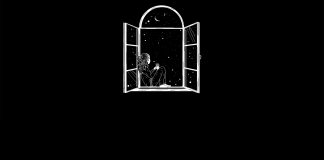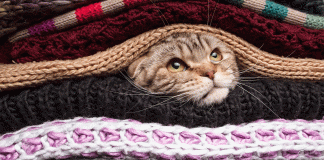Surviving adolescence
Advertising makes the teenage years seem like the best years of life. However, adolescence is a time of great emotional turmoil for both children and their parents. It's a time when many important decisions are made, with life-changing consequences.
From logos to imago: when the image has the final say
While the form and content of books may evolve, their essence and function will remain unchanged—“the book will remain what it is”. This is the view expressed by renowned literary figures Jean-Claude Carrière and Umberto Eco in their 2009 dialogue series titled This is Not the End of the Book.
Stories with happy endings | How to keep going despite the obstacles
For some people, suffering is temporary. For others, life itself can be a long series of painful blows. However, experience shows that recovery is possible even when people seem to be at the end of their tether.
Life in the vicinity of death
One night while checking on his patients in a palliative care centre, the therapist risked asking a confusing question to a person whose universe had shrunk to the size of his sickbed: “What brought you joy today?” The answer was immediate: “Being alive.”
A guide to resurrecting New Year’s resolutions
For many people, the New Year is the catalyst for making changes they didn't have time or energy for in the previous year. On 1 January, the list of resolutions grows promisingly long, but keeping them can become a real ordeal in the tangle of daily problems and deadlines. Statistics show that even before the month of snowdrops, many of the commitments made...
Can parents help motivate their children?
One of the biggest challenges facing both parents and teachers is to help children stay motivated so that they can keep focus, persevere when they are struggling, move forward, and finish what they have begun.
Small changes and their remarkable impact
Changing habits is like tightrope walking: an exercise in which the balance is always fragile, but it is the small changes that pave the way to truly remarkable results.
Difficult conversations | How do we talk about death with our children?
Talking to your children about death can be an act of love. You can't take away their pain with a simple conversation, but you can give them something just as important: truth wrapped in gentleness, the reassurance and relief that they are not alone in their grief, and even the hope that sees beyond the loss.
31 days of Christmas
I love Christmas, and opening Nathan Brown’s book, Advent: Hearing the Good News in the Story of Jesus’ Birth, reading each page, is like opening a carefully wrapped Christmas present, undoing the gift card attached with ribbon and bow, folding back the bright cellophane wrapping and lifting the lid off a curious little box containing the Gift itself. The gift in this case...
Is it monotonous to be monogamous?
The possibility of completely rewriting the rules by which we organise our lives has always captured people's imagination. However, such a reorganisation has materialised, at best, in the pages of a philosophical book and has remained, for the most part, a utopia. But there are exceptions, of course.
How gratitude can save us from ourselves
We are so familiar with complaining that we don't even recognise its presence in our interactions. It has become part of us—and, according to rumours on the internet, so have its consequences. The whining we are told we do every minute of every conversation has the power to destroy our neurons.
Depression and the soul’s immune system
“You will keep in perfect peace those whose minds are steadfast, because they trust in you,” wrote the prophet Isaiah—and some jumped to the conclusion that those who do not experience peace do so because they lack a sound mind or faith.
Love, from dawn to dusk
Love stories have a way of creeping into the foreground and convincing us that their effervescent debut is just the overture to a marriage that will always rekindle, in a different intensity, the same fireworks of beginnings.
For a clear conscience we must drive away negative thoughts. True or false?
There is a huge volume of literature, in bookstores and online, which contain recommendations for a more enjoyable life, in accordance with the hidden skills of each one of us. One of the great secrets put forward is freeing the mind from all negative thoughts.
Being your best you
A week before he left for college, megachurch pastor Steven Furtick’s oldest son asked him, “Out of everything you’ve taught me, what’s the best advice you can give me right now?”


























